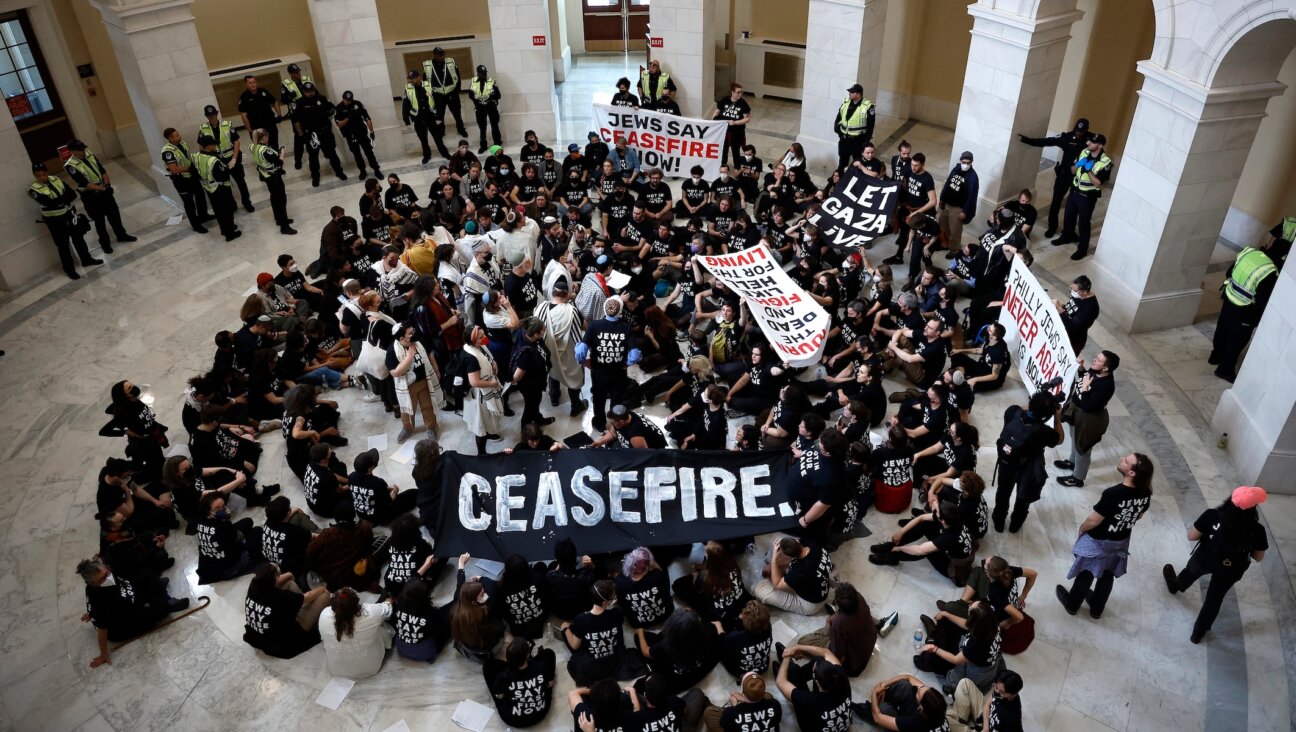Hell’s kitchen? Flamethrowing rabbi goes viral for making kitchens kosher
Florida rabbi sets social media on fire with spectacular video

This is not a picture of Rabbi Mendel Weiss making a kitchen kosher, but it’s not far off. Photo by mikkelwilliam/iStock
A Florida-based rabbi has set social media on fire with a video documenting part of his process for making kitchens kosher.
In the video, Rabbi Mendel Weiss can be seen taking a powerful blowtorch to a kitchen’s surfaces, incinerating any last bits of potentially non-kosher substances. His wife, Tzippy, posted it to her TikTok account, where it was shared over 17,000 times.
While it’s an impressive sight that more than slightly resembles the fiery climax of Once Upon a Time in Hollywood, it’s all in a day’s work for Weiss, who leads the Chabad Miami Lakes and has been kashering kitchens, “from big hotels to home kitchens,” for 20 years.
@bubbywithababy Who would ever believe that a Rabbi with a blowtorch making a home kosher would go viral. Do not worry he is a trained professional, and just like you would not think twice about the guy who eats fire, juggles fire, jumps through fire, or is a stuntman in cars that blow up with fire , know that he trained with years of experience in Kosherizing kitchens and utensils. 28 years worth of experience in Koshering Kitchens including commercial kitchens, hotels, vacation homes and newly purchased homes. The only home that does not need ro be made kosher is one with a brand new kitchen that has not yet been touched by other food. This is obviously a several hour process and this reel was after everything was complete. It just touches upon the absolute "coolness" in going Kosher. #rabbis #rabbisoftiktok #rabbisofinstagram #kosher #kosherfood #viral #myhusband ♬ original sound - Tzippy
“I do the highest standards of kosher for people. I’ve come up, with the approval of many other rabbis, with different ideas for how to do it in the least danger — and it looks dangerous! — and most kosher, least messy way possible.”
His process looks closer to clearing out Nazi bunkers on the beaches of Normandy than to what many might imagine the normal day of a rabbi to be, even though the use of blowtorches to kosher a kitchen is not uncommon. Weiss acknowledges the spectacular nature of his work and attributes the video’s popularity to “a lot of people are ignorant and do not know there is something like koshering a home and this is how it’s done.”
Indeed, many of the people who saw the video expressed, if not shock, at least bemused confusion. One person who posted a reaction video reacted by gaping silently before chuckling and admitting, “I don’t even know what to say. I have never seen this.”
Love when the goyim find jewish content on tiktok amd are completely confused. pic.twitter.com/K3s71KIALv
— Jewish Student ✡?? #istandwithukraine (@jewishstudent1) March 16, 2023
Despite the extreme heat of his device, Weiss said the only time he’s ever been injured was on one occasion when he used boiling water rather than actual fire. Some of the liquid splashed back onto him, giving him what he estimated was a third-degree burn. That incident occurred around Weiss’ busy season, the days leading up to Passover, when he estimates he’ll make up to six or seven kitchens kosher for the holiday in a single night. Due to the hectic schedule, Weiss kept on working instead of going to the hospital.
That’s not to say there haven’t been fire-related incidents. He’s cracked at least one non-tempered glass countertop and melted the tiles around an outdoor barbecue. Weiss conducts an assessment before hauling out the big guns, and says he informs clients that there’s always a risk of damage when a hot flame is involved.
But, he insists, there is little danger to himself or others while he’s working. Asked if he takes any precautions, he says there is one: “Well, I pray a lot.”
Not every reaction has been positive though: Tzippy shut down comments on the video after a deluge of antisemitic content.
“On the one hand, I was very happy that some people actually called and wanted to find out what was koshering. I’m happy to help other people,” the rabbi said. “On the other hand, there was a lot of hateful responses.”





















